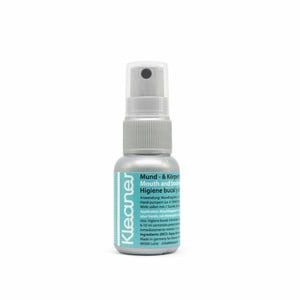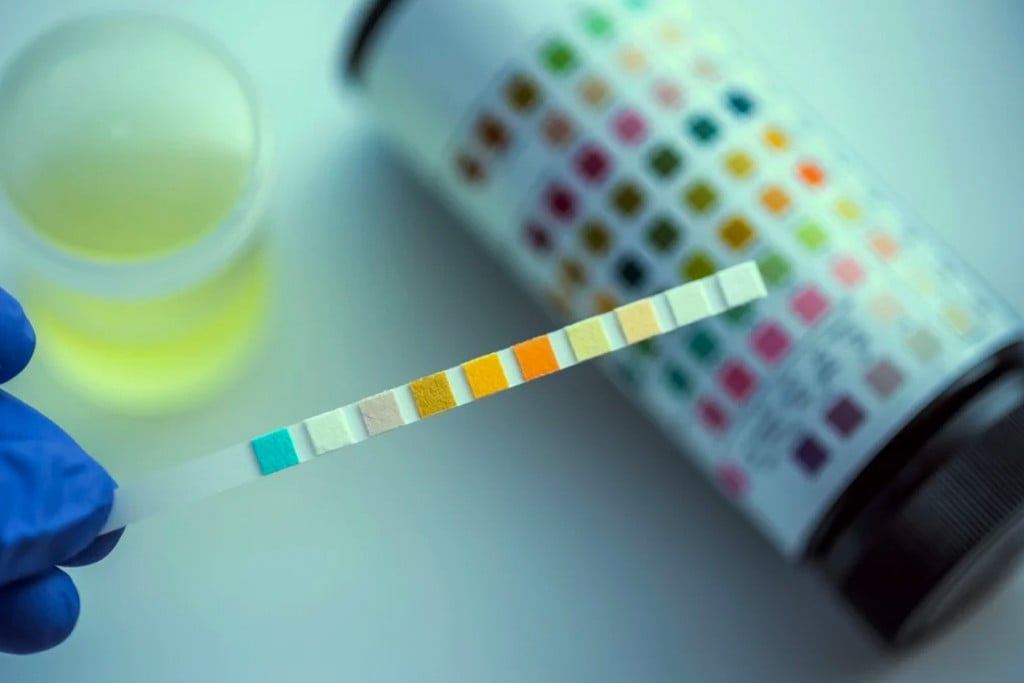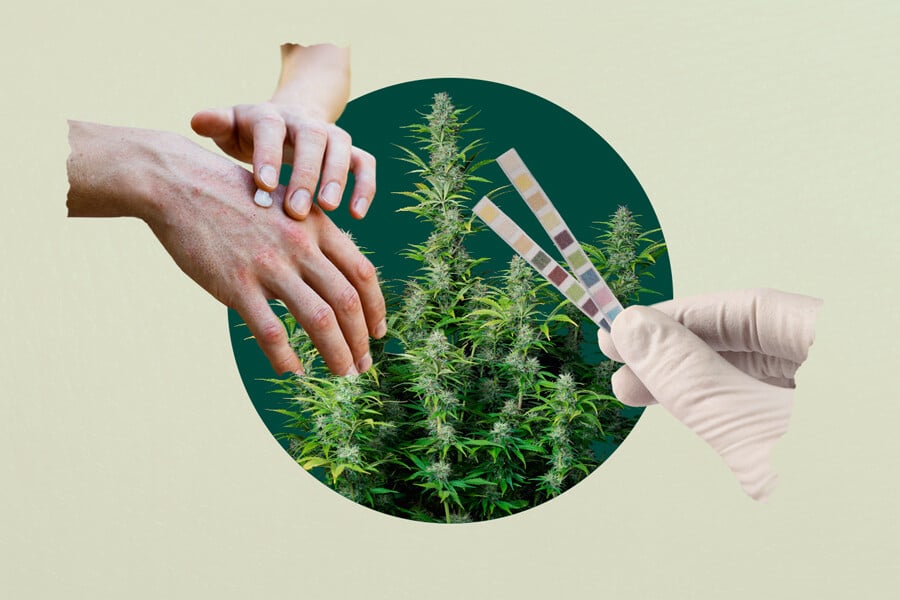.
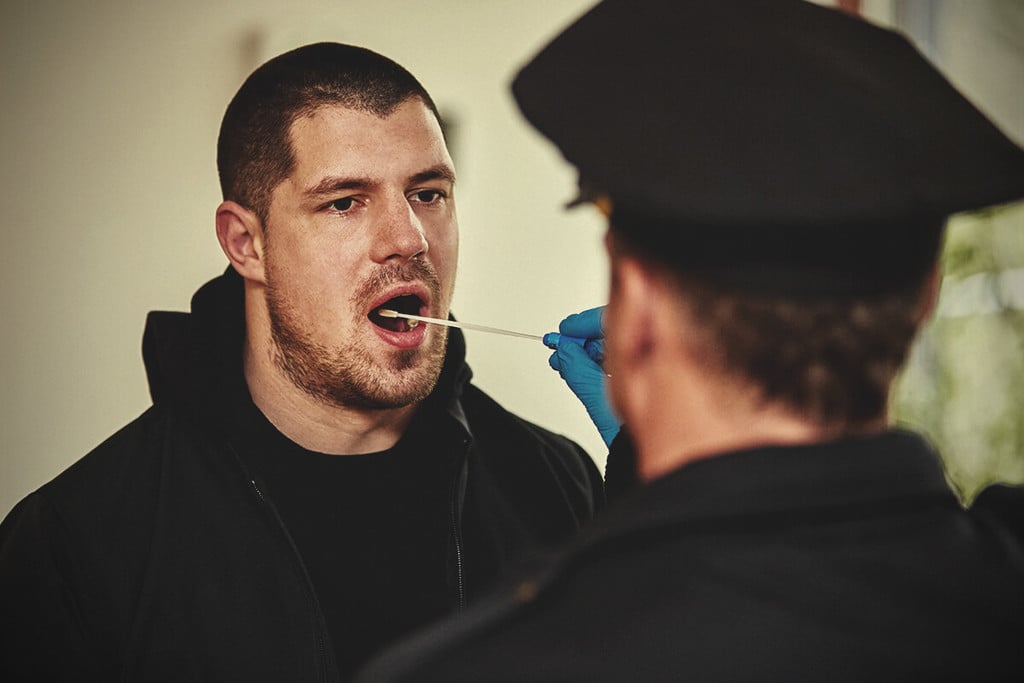
How To Avoid Getting Busted for Having THC in Your System
Traffic cops and employers are on the prowl for THC. However, roadside tests can detect the cannabinoid hours after sobering up, and we believe employers should stay out of the personal lives of their workers. For these reasons, we've cooked up a few tips to help minimise the chances of flagging up positive during blood, urine, and saliva tests.
Contents:
Although cannabis legalization has taken hold in some countries, many nations are still lagging behind. Workers can freely smoke tobacco and drink alcohol in their spare time, but choosing to use cannabis still remains problematic.
This unfortunate reality means many cannabis users, both holistic and recreational, run the risk of losing their jobs due to workplace testing. Governments are also looking to catch out cannabis users on the roads.
So, how to avoid getting busted with THC? We have the answers. Check out the pro tips below to learn how to conceal your love for weed and minimise getting caught out on a test.
How Has Testing for THC Evolved?
But first—a little history. Testing for THC in the workplace and elsewhere has grown alongside the sheer popularity of cannabis. In the 1960s, the technology simply wasn’t in place to test workers and drivers for traces of weed in their system.
Nowadays, in the age of smartphones and Teslas, employers and police can test workers and citizens quickly and easily. Cannabis remains one of the most popular mind-altering substances, while also remaining illegal in many countries of the world.
Draconian legislation drives police to catch out and prosecute citizens that take to the roads while high, and employers often test their workers on the grounds that smoking cannabis outside of work could impair workplace morale and productivity.
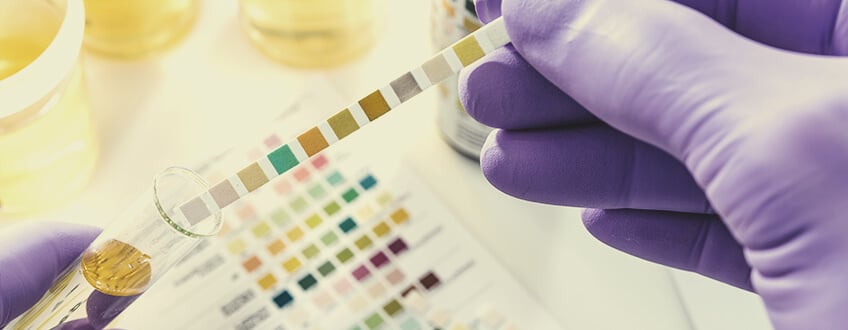
-
Workplace Testing
After signing up for a job, you might be caught off guard by your employer’s desire to gain a biochemical window into your personal life. Despite being able to drink to your heart's content when off the clock, you’ll mostly likely pay a price if you decide to exercise free will with smoking weed.
Many smokers view these policies as downright inappropriate, yet this kind of practice is only becoming more common. In the United States, for example, the majority of businesses now have drug testing programmes in place.
Employers typically test urine samples for traces of drugs, including THC. Metabolites of the cannabinoid can show up in urine for weeks or even months following consumption (depending on frequency of use), and some companies use surprise testing to catch their employees off guard.
Even with the spread of legal cannabis, some businesses still hold a zero-tolerance policy when it comes to weed, even in “legal” states. However, some businesses are beginning to scrap THC testing altogether.
-
Roadside Testing
Driving a car with traces of THC in your system can land you in trouble in a lot of countries. If you’re suspected of driving under the influence of THC, you’ll likely have to undergo a saliva test at the side of the road. These tests can detect THC up to 12 hours after use in average users.
However, for heavy cannabis users, the test can flag up a positive test after a whopping 30 hours, placing them at considerable risk of getting caught and prosecuted, even if they weren’t high while behind the wheel.
How Does THC Testing Vary From Country to Country?
THC testing in the workplace and on the road varies dramatically from country to country. The practice is becoming a lot more common in stringent nations such as the United Kingdom, but increasingly relaxed across the Atlantic ocean in the United States.

US
The United States is leading the charge on cannabis legalization on the global stage. Although cannabis remains a Schedule I drug in the eyes of the federal government, 36 states have taken it upon themselves to legalize cannabis on medical grounds. Of these, 14 allow for recreational use.
So, how has this lenient stance affected THC testing at work? Check out a few key examples below.
-
Oregon
Drug testing remains sparse in this West Coast state. If an employer suspects one of their workers to be impaired, they typically can’t push for a drug test. However, employees with specific positions may have to undergo testing. A positive result can lead to discipline and even dismissal.
All positions that require a commercial driver’s licence are subject to testing, as stated by Oregon state law.
-
Nevada
As one of the most libertarian states in the US, workers in Nevada can practically smoke to their heart's content in their free time. As well as toting some of the most relaxed gun laws in the country, Nevada banned all workplace THC tests following legalization in the state.
Europe
While some areas of Europe are cracking down on driving while high and smoking outside of work, other nations are taking a noticeably chill approach. Check out some of the major distinctions below.
-
UK
The United Kingdom is notoriously authoritarian when it comes to cannabis. Growing a few plants is enough to land an otherwise law-abiding citizen in prison for up to 14 years.
Cases of roadside drug tests are surging in the country after the introduction of “drugalyser” saliva tests in 2015, which primarily screen for cannabis and cocaine. Penalties for a positive test include driving bans, fines of up to £5,000, up to a year in prison, and a criminal record.
Despite an increase in roadside testing, THC testing remains relatively rare in the workplace. Most roles don’t require frequent screening for THC, outside of safety-critical roles in the transport and construction industries.
-
Holland
Perhaps unsurprisingly, the nation famous for its coffeeshops refuses to test employees for THC across the board. However, road tests are becoming increasingly common.
How Long Does THC Stay in Your System?
Blood, urine, and saliva tests are the most common ways employers and law enforcement screen for THC. Because the cannabinoid has a tendency to linger in different parts of the body for varying periods of time, some tests can only obtain a positive result shortly after someone consumes THC. In contrast, other forms of screening can detect traces weeks (or months) afterwards.
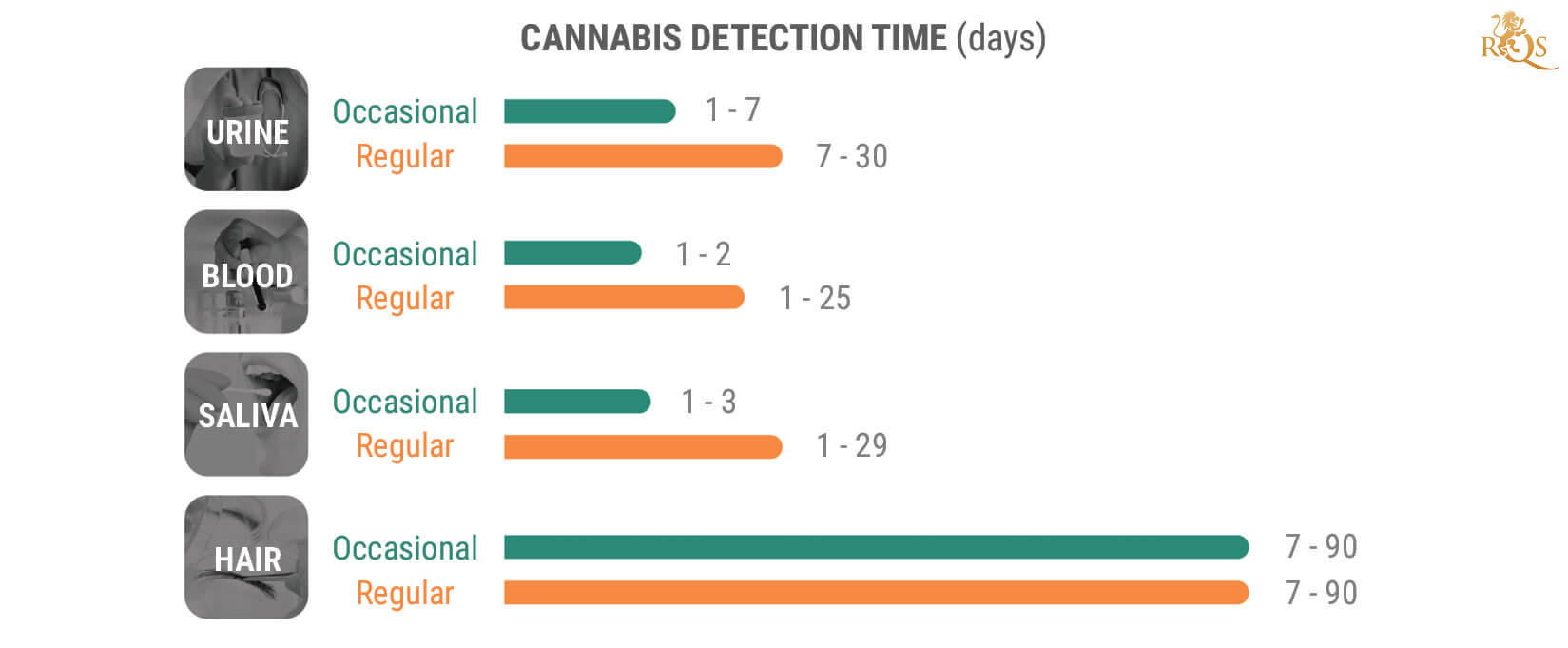
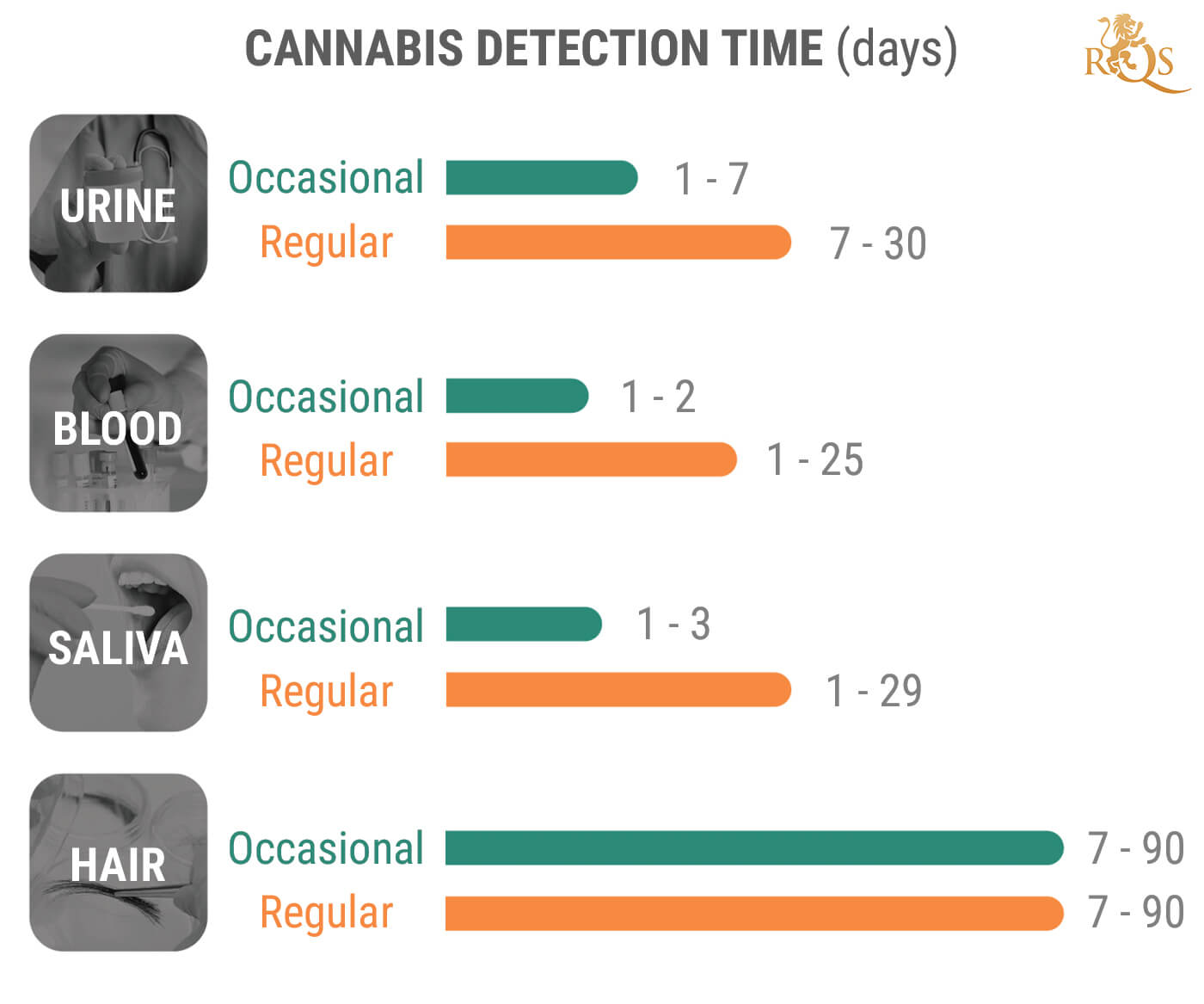
-
Urine
Urine tests can detect THC long after being high. Occasional users run the risk of a positive test result 1–7 days after smoking, whereas regular users may flag up between 7–30 days after stopping smoking.
-
Blood
Blood tests are rarely used in the workplace, as they can only detect the presence of THC during a short window of time following smoking. However, they are often used during traffic accidents and sobriety checkpoints.
THC remains detectable in the blood for 1–2 days after smoking. Although, long-term chronic users may test positive up to 25 days after stopping smoking.
-
Saliva
Saliva tests are similar to blood tests, in that their detection window is short. In casual users, they’ll detect THC up to a couple of hours later. Again, long-term users have it harder; THC can remain in the saliva for up to three days.
Understanding a False-Positive Test
A false-positive result flags up for THC, even if a person has never used cannabis. Tests are never 100% accurate, and even ibuprofen used to sometimes lead to positive results during THC screening.
Many workplaces work around this issue by testing positive results twice. If the initial test flags up, they’ll send the sample off for a more accurate test using a gas chromatograph-mass spectrometer (GCMS).
How To Deal With Roadside THC Testing
For some users, especially those that use the herb holistically, giving up smoking isn’t an option. We don’t recommend driving while high, but some roadside tests will still flag up even if you smoked hours before getting behind the wheel.
Check out the tips below to avoid getting busted for THC if you get pulled over to the side of the road, or find yourself rolling through a sobriety checkpoint.
-
Occasional Cannabis Users
Occasional cannabis users are at much less of a risk of getting caught out. The levels of THC in urine and saliva will dissipate quickly if you only use weed every now and then. If this sounds like you, the following will minimise your chance of getting busted on THC.
| Wait a Few Hours Before You Drive | Urine and saliva tests will only detect THC in your samples a few hours after smoking weed. Simply stop smoking a couple of hours before you leave the smoking session, and make sure you don’t spend the remaining time sitting in the middle of a hot box. |
| Stay Hydrated | Drink plenty of water before you leave. This strategy will dilute your blood, urine, and saliva, and minimising the amount of THC and its metabolites in every drop. |
| Wait a Few Hours Before You Drive |
| Urine and saliva tests will only detect THC in your samples a few hours after smoking weed. Simply stop smoking a couple of hours before you leave the smoking session, and make sure you don’t spend the remaining time sitting in the middle of a hot box. |
| Stay Hydrated |
| Drink plenty of water before you leave. This strategy will dilute your blood, urine, and saliva, and minimising the amount of THC and its metabolites in every drop. |
-
Recreational Cannabis Users
Long-term chronic smokers have an accumulation problem when it comes to THC metabolites. Even if you stop smoking for a few weeks, you could still theoretically get a positive test result at work or while driving. Use the strategies below to minimise the risk.
| Use Kleaner | Before hitting the road, spray a dose of Kleaner into your mouth to remove any residues that might show up on a mouth swab test. |
| Use Kleaner |
| Before hitting the road, spray a dose of Kleaner into your mouth to remove any residues that might show up on a mouth swab test. |
How To Deal With Workplace THC Testing
While roadside tests typically use saliva samples, tests in the workplace are likely to collect a bottle of your piss. But, don’t worry, both occasional and hardcore smokers can avoid getting busted for THC.
-
Occasional Cannabis Users
As well as hammering the water the day before your test (but not too much), we suggest staying active to reduce the risk of a positive result further.
| Aerobic Exercise | Aerobic exercise ramps up the metabolism and helps the body to break down, sweat out, and excrete stray THC metabolites. Put on some motivating music and jump on a treadmill, go for a bike ride, or head to the local swimming pool to burn some calories. |
| Aerobic Exercise |
| Aerobic exercise ramps up the metabolism and helps the body to break down, sweat out, and excrete stray THC metabolites. Put on some motivating music and jump on a treadmill, go for a bike ride, or head to the local swimming pool to burn some calories. |
-
Recreational Cannabis Users
If you’ve smoked every day for the past year, you’re far more likely to flag up on a urine test, even if you abstain for a few weeks. Use the additional tips below, and combine them with hydration and exercise to really avoid getting busted for THC.
| Detox | Detox drinks may help to remove traces of THC from your body and blood. While the market offers a range of expensive options, natural diuretics such as coffee and cranberry juice will help your body expel much more urine than normal. |
| Take Charcoal | Activated charcoal has a huge surface area, binding to molecules and removing them from the body. Doctors commonly use this substance in cases of poisoning because of how effective it is at pulling molecules out of the body. Take a few activated charcoal capsules during the week leading up to your test. |
| Reason With Your Employer | Supplements and hydration will only go so far, and you need to stop smoking for a while for them to truly work. If you're a holistic user that relies on cannabis, you might need to chat with your boss. In the United States, obtaining a medical certification will likely help you during this process. If you live in an area with no form of legal cannabis, this process becomes much more difficult. If you really need cannabis, and abstinence isn’t an option, consider talking with your boss on a person-to-person basis using an educational approach as a last resort. |
| Detox |
| Detox drinks may help to remove traces of THC from your body and blood. While the market offers a range of expensive options, natural diuretics such as coffee and cranberry juice will help your body expel much more urine than normal. |
| Take Charcoal |
| Activated charcoal has a huge surface area, binding to molecules and removing them from the body. Doctors commonly use this substance in cases of poisoning because of how effective it is at pulling molecules out of the body. Take a few activated charcoal capsules during the week leading up to your test. |
| Reason With Your Employer |
| Supplements and hydration will only go so far, and you need to stop smoking for a while for them to truly work. If you're a holistic user that relies on cannabis, you might need to chat with your boss. In the United States, obtaining a medical certification will likely help you during this process. If you live in an area with no form of legal cannabis, this process becomes much more difficult. If you really need cannabis, and abstinence isn’t an option, consider talking with your boss on a person-to-person basis using an educational approach as a last resort. |
The Future of Roadside and Workplace THC Testing
Although some countries and states are becoming more relaxed with workplace testing, others are ramping things up. As cannabis legalization continues to make its way around the world, testing for THC will likely decline in the coming years.
However, with this embrace, we’ll likely see a surge in roadside testing. We’re already seeing problems in this system, with individuals testing positive hours after the effects of THC have worn off.
Hopefully, progress in testing technology will help to seal up this loophole. Until then, the game of cat and mouse continues.


























